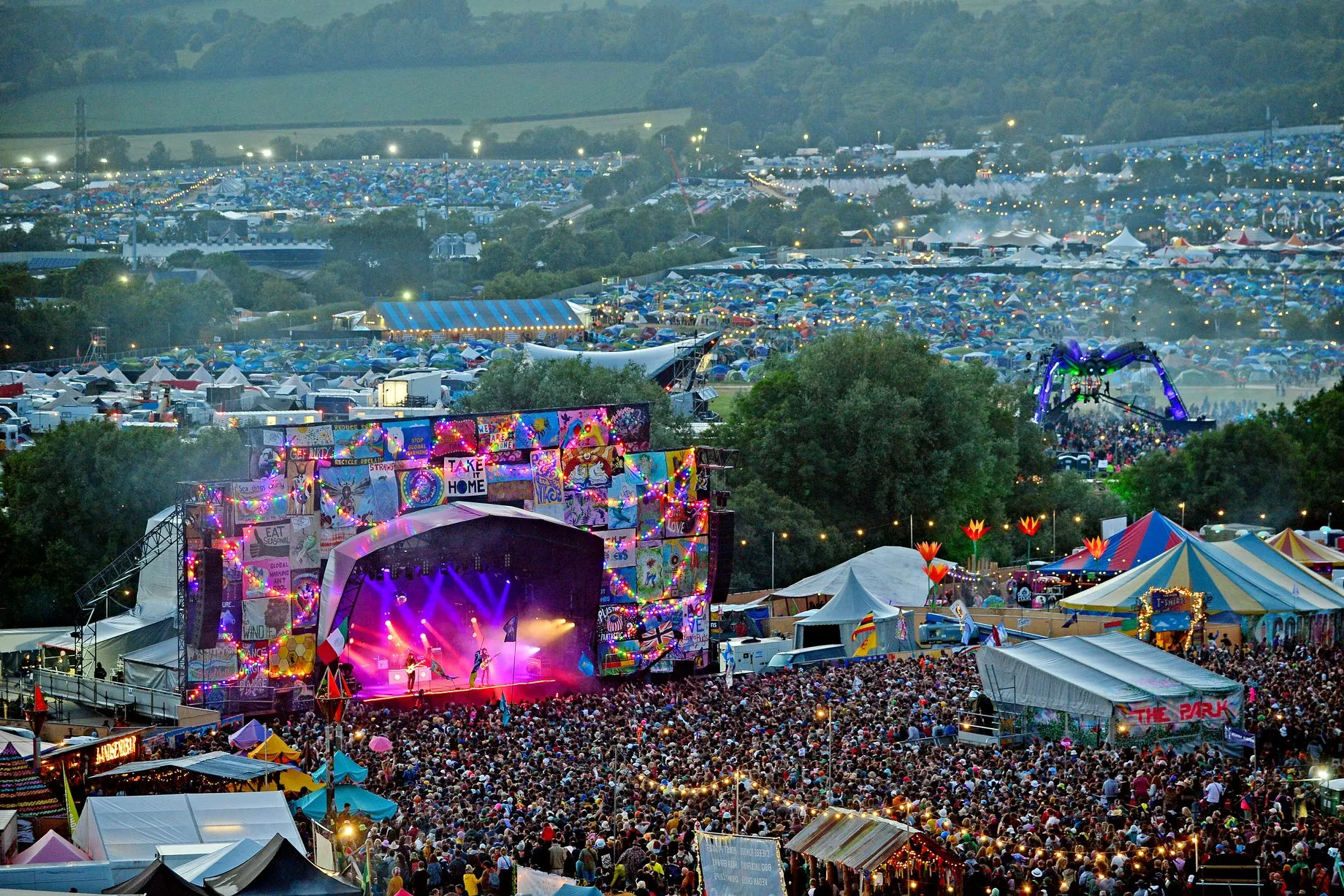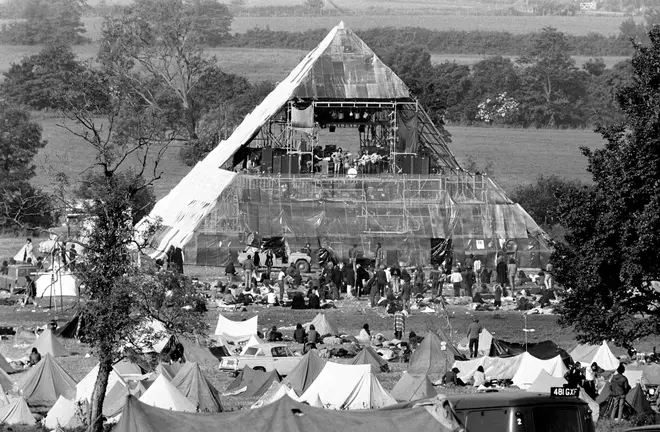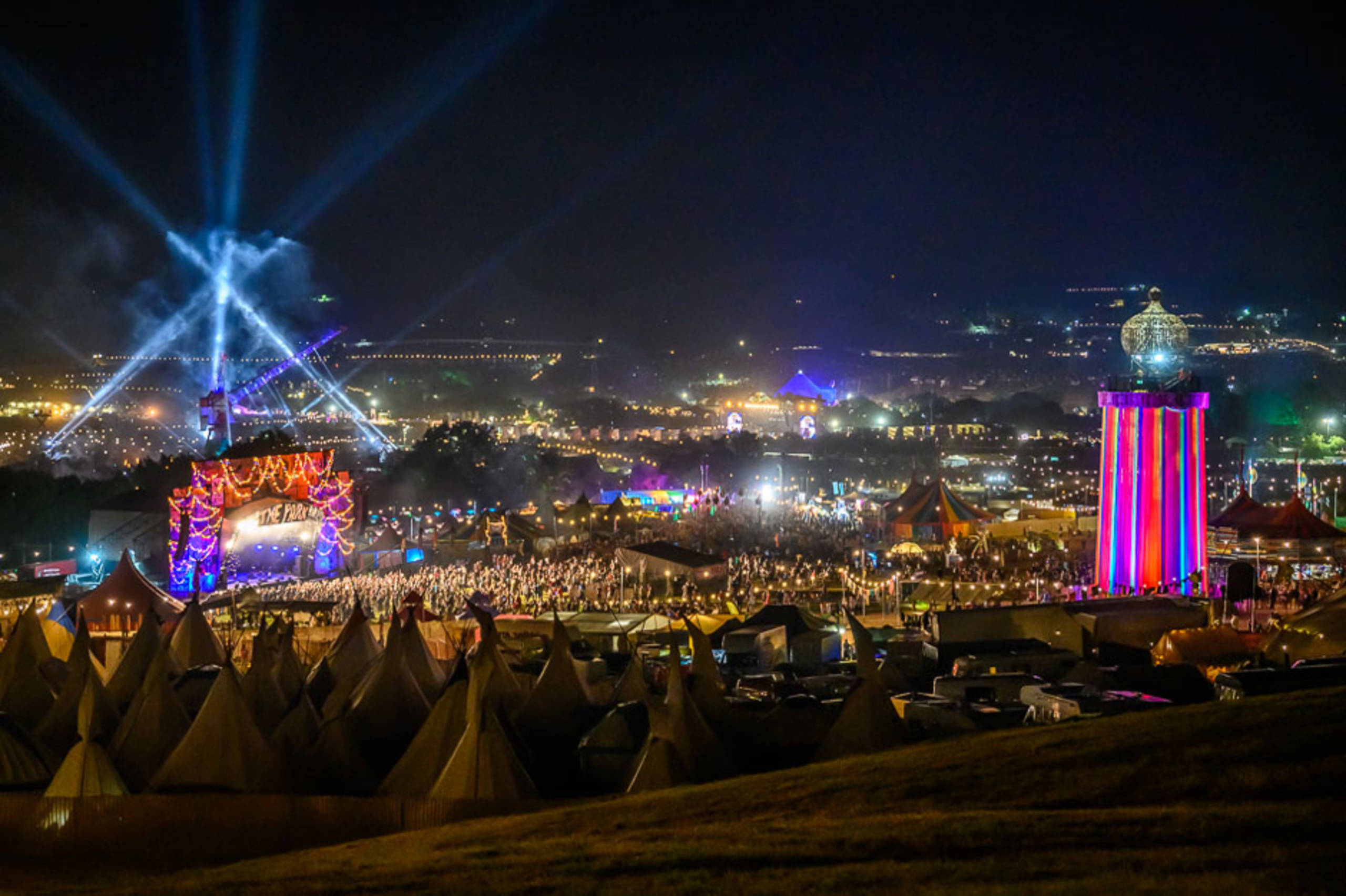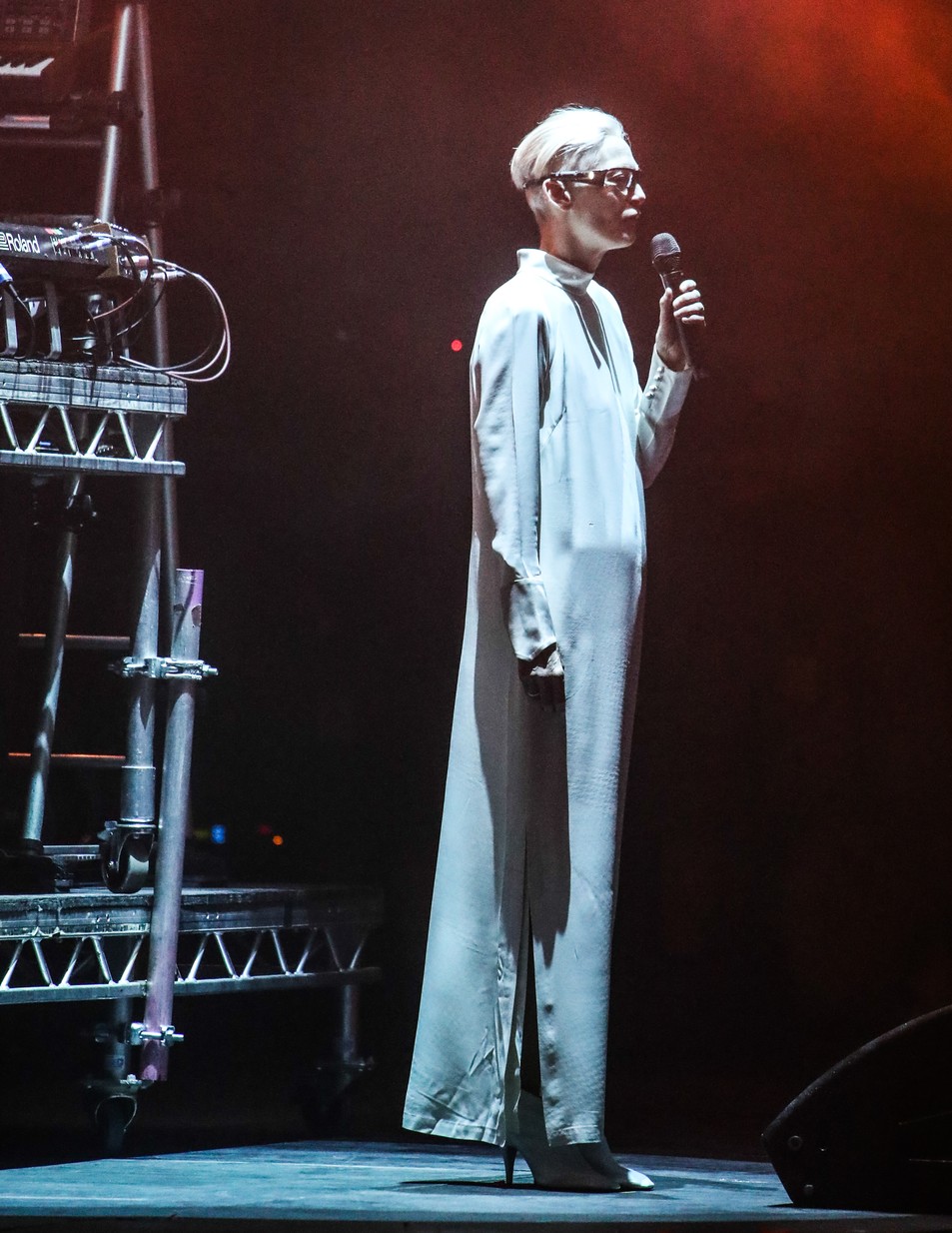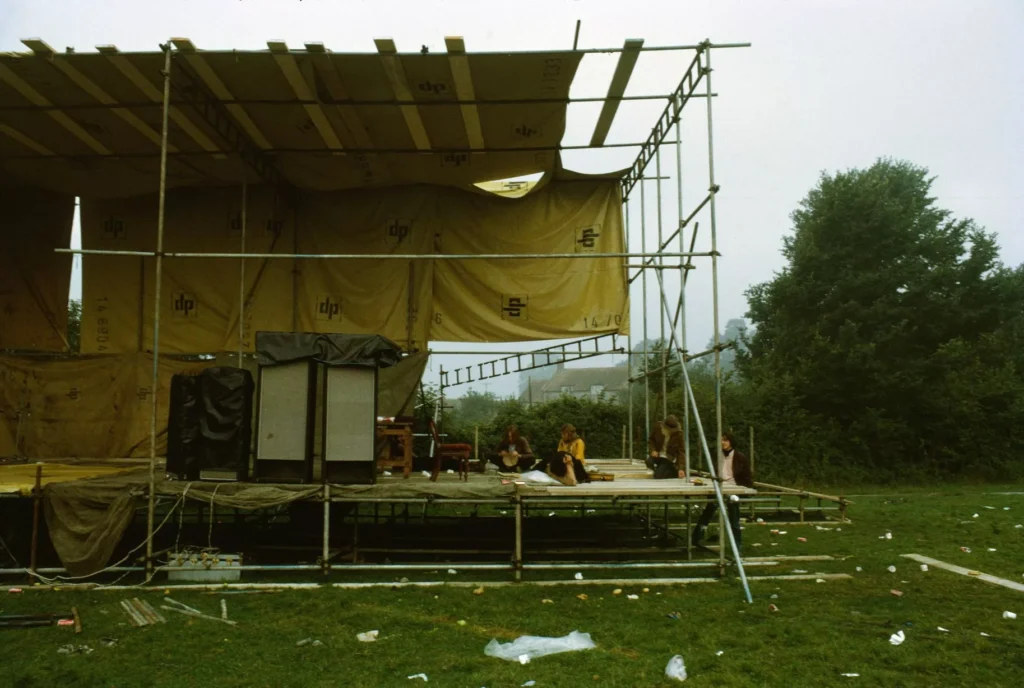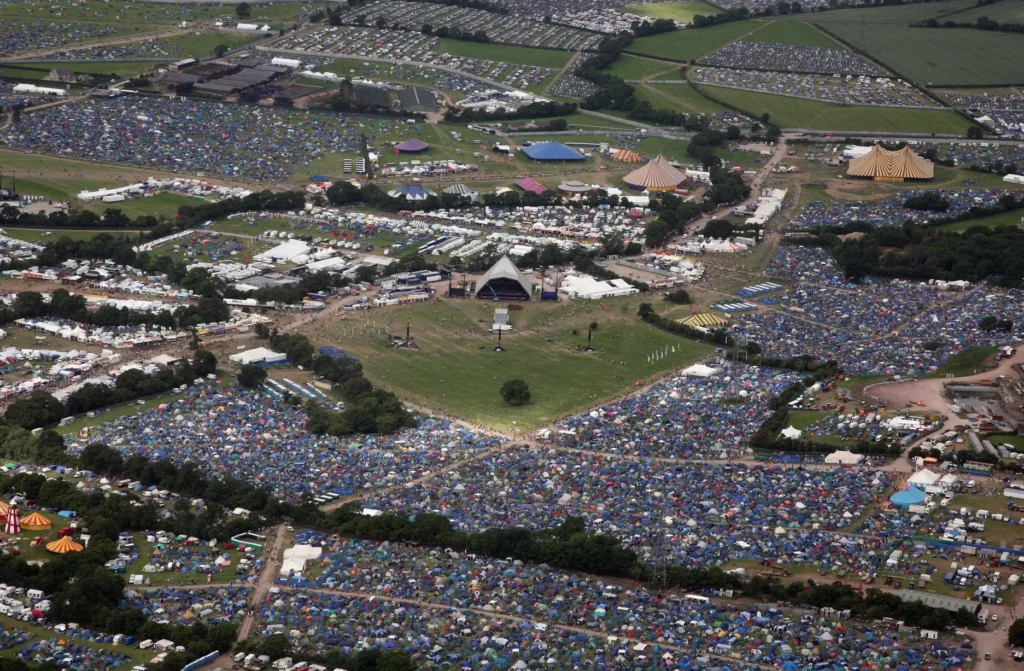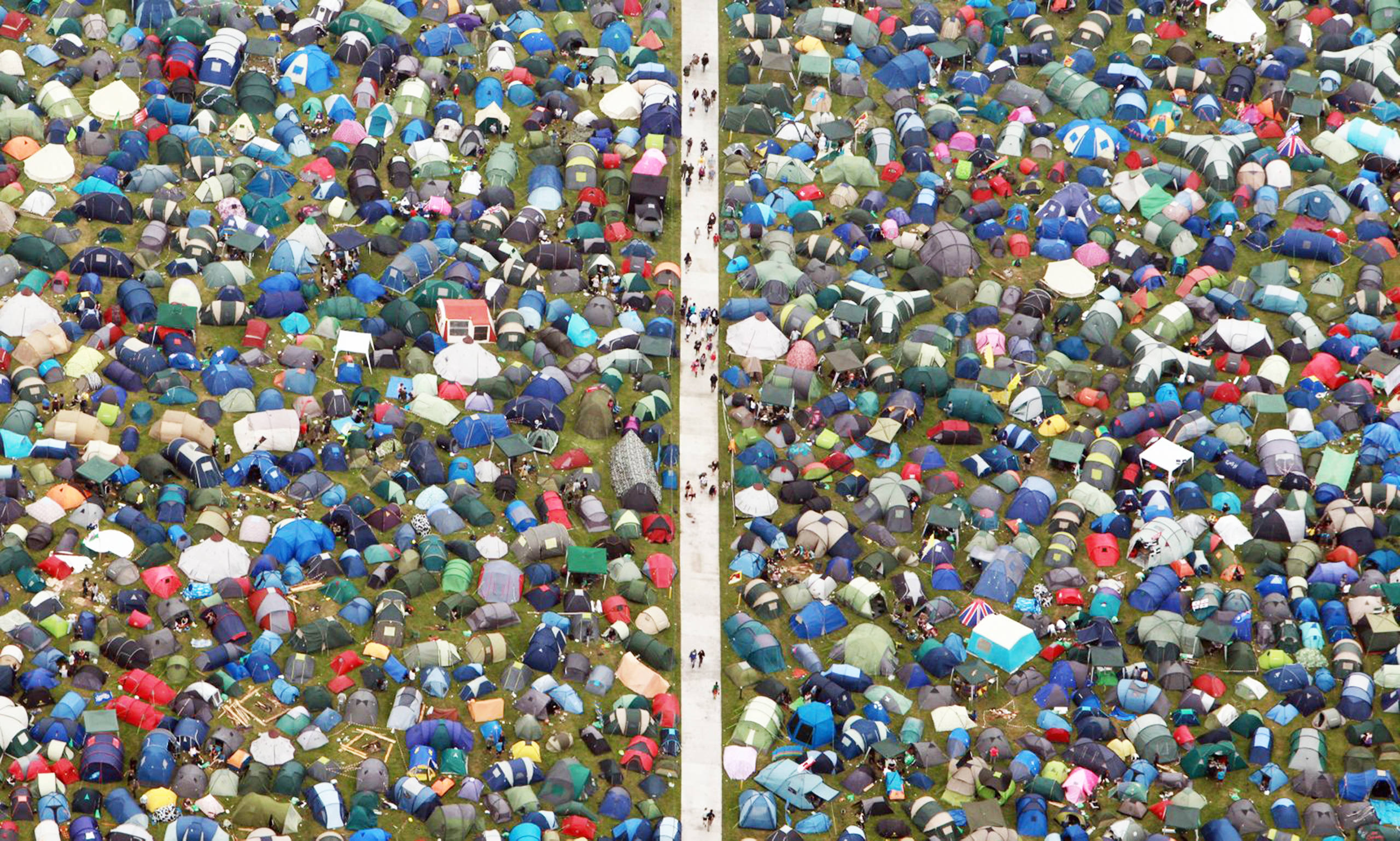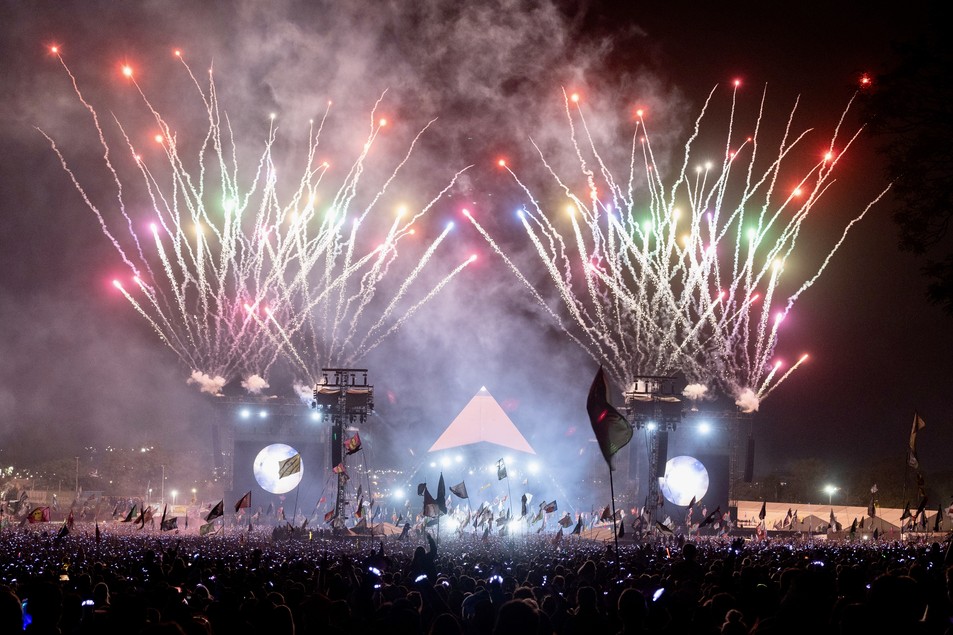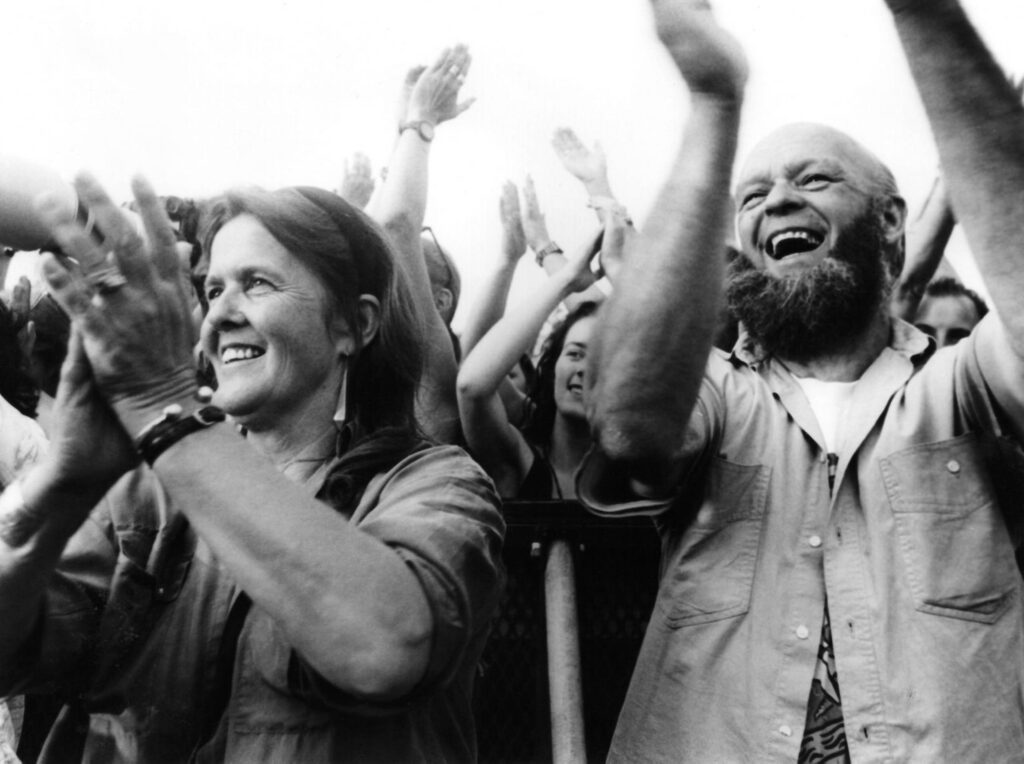Glastonbury
50 years film
Glastonbury: 50 Years & Counting
Several minutes of footage I captured at Block9 Glastonbury was licensed to BBC Studios and was included in the film.
Available to watch on Apple TV and Prime Video.
In a film three years in the making, producer/director of the acclaimed David Bowie Five Years trilogy Francis Whately creates a kaleidoscopic portrait of Glastonbury for this social and musical history of (probably) The World's Greatest Music Festival, as told through the testimony of its principal curators, Michael and Emily Eavis, and the artists who've appeared there over the years. This is not a chronological plod through the festival's evolution, so much as a thematic and story-driven exploration of the peaks and troughs, the agonies and the ecstasies, that have shaped its many eras. Balancing the driving forces of social conscience and hedonism, Glastonbury has always been both a world apart and a barometer of the state of the nation. Cameras take viewers backstage and deep into the archive to reveal the forces that have driven this alternative nation between utopia and dystopia, the Greatest Night Of Your Life and a Muddy Field In The Middle Of Nowhere.

Article by NME:
Fifty-two years, actually, but we’ll forgive them the fudge. The 50th anniversary of Glastonbury’s inaugural event in 1970 was postponed twice as the pandemic forced both the 2020 and 2021 events off the summer calendar so, understandably, BBC Two’s belated celebration documentary also arrives a couple of years late. Luckily it’s timeless enough, telling a familiar story of the festival’s evolution from hippie country fayre through its activist ‘80s (and the clashes that resulted) to its explosion into one of the world’s biggest and brightest cultural phenomena. It’s as much a boundary-busting artistic utopia as the pinnacle of ambition for the world’s finest musical talents.
Somewhat confusingly, Glastonbury: 50 Years & Counting doesn’t tick off those years chronologically. As if trying to recreate the effects of the psychedelic hash crumpet you’ll inevitably neck on the Thursday night, it time-jumps around Glasto’s history, often at random. We open in 2019, with Billie Eilish on her first appearance at Worthy Farm, astutely observing “it felt like its own world”, then leap back to the early ‘80s, when Thatcher’s copious cruelties inspired Michael Eavis to transform his free-milk fayre into a hub of communal protest in aid of Oxfam, Greenpeace and the Campaign for Nuclear Disarmament. Only after The Smiths turn up to wake the activists to the arrival of indie rock do we then rewind to the festival’s birth in 1970 and get the Bowie-in-’71 anecdotes we came here for – singer Linda Lewis recalling how she and Bowie shared magic mushroom omelettes and thinking they were Lancelot and Guinevere.
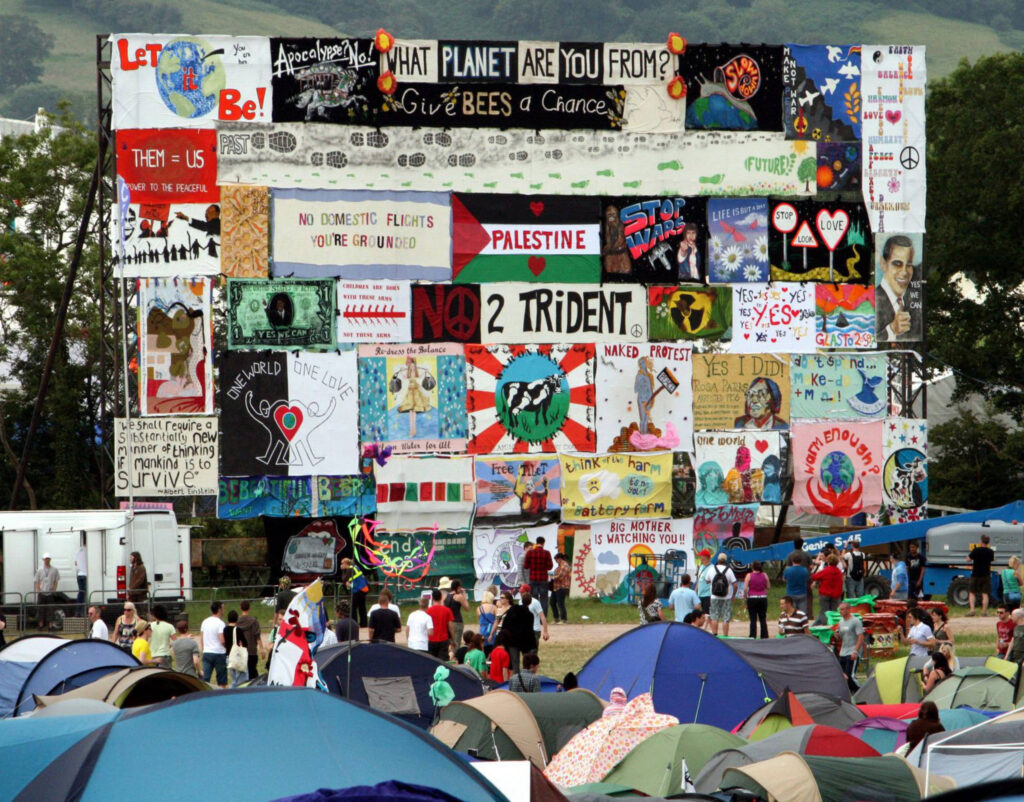
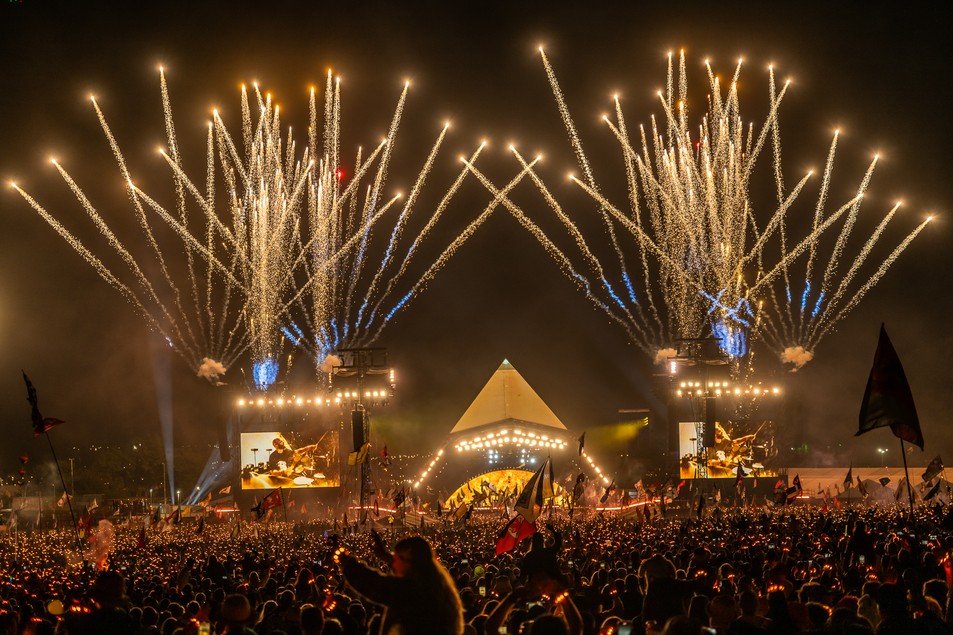
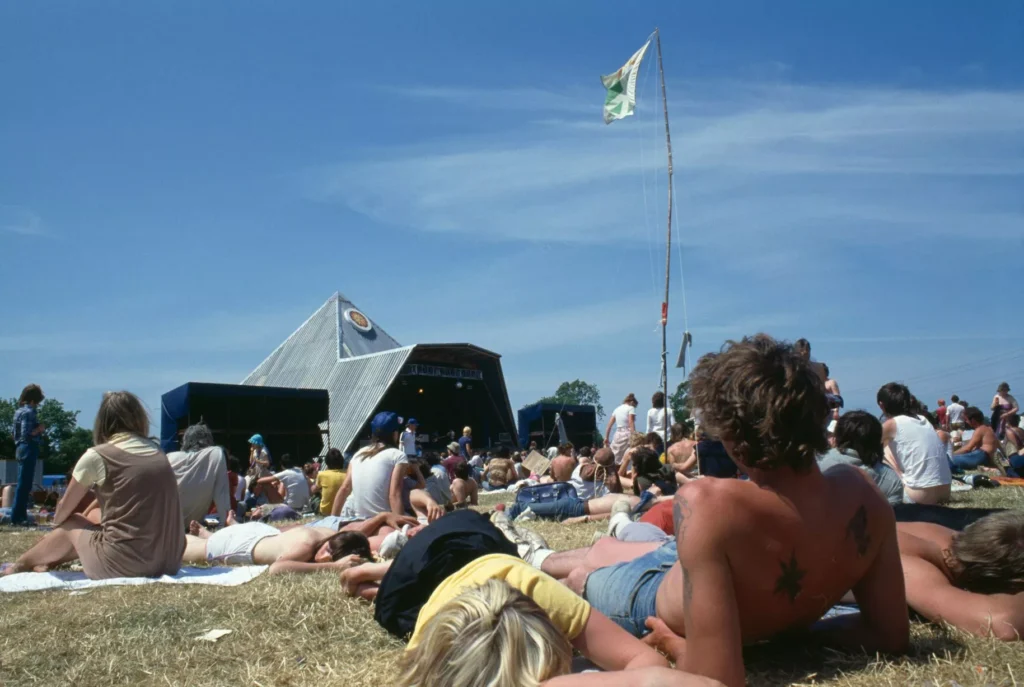
From there the doc becomes truly engrossing, as we chalk out the beginnings of Glastonbury’s attitude of freedom and permissiveness. First the “scary” naked mud hippies make Glastonbury their favoured escape pod from square society in 1971. Then Eavis’ embrace of the travelling community following the harrowing violence at the Battle Of The Beanfield in 1985 gives the festival an outlaw edge but also its element of counterculture-trash inventiveness. It was here that ‘carhenges’ began springing up on site and the anything-goes attitude of ‘naughty corner’ began to take hold.
Once the police wade in in 1990, the travellers are evicted and the crowd issues (and minor army of fence-jumping drug dealers) of the ‘90s are fixed with a super-fence, the establishment and sanitisation of Glastonbury suggests the next 50 years documentary in 2070 will be rather less eventful. The struggles, swerves and existential threats are largely here, pored over by talking heads including Radiohead, Noel Gallagher and Chris Martin and accompanied by a refined selection of relevant performances. Discussions on the dark political days of the 1980s take place to the crepuscular sounds of Portishead from 2013, the arrival of the travellers is marked by the hunt horns of PJ Harvey’s ‘The Glorious Land’ from 2016 and the riots that followed are soundtracked by the Celtic angst of Sinead O’Connor.

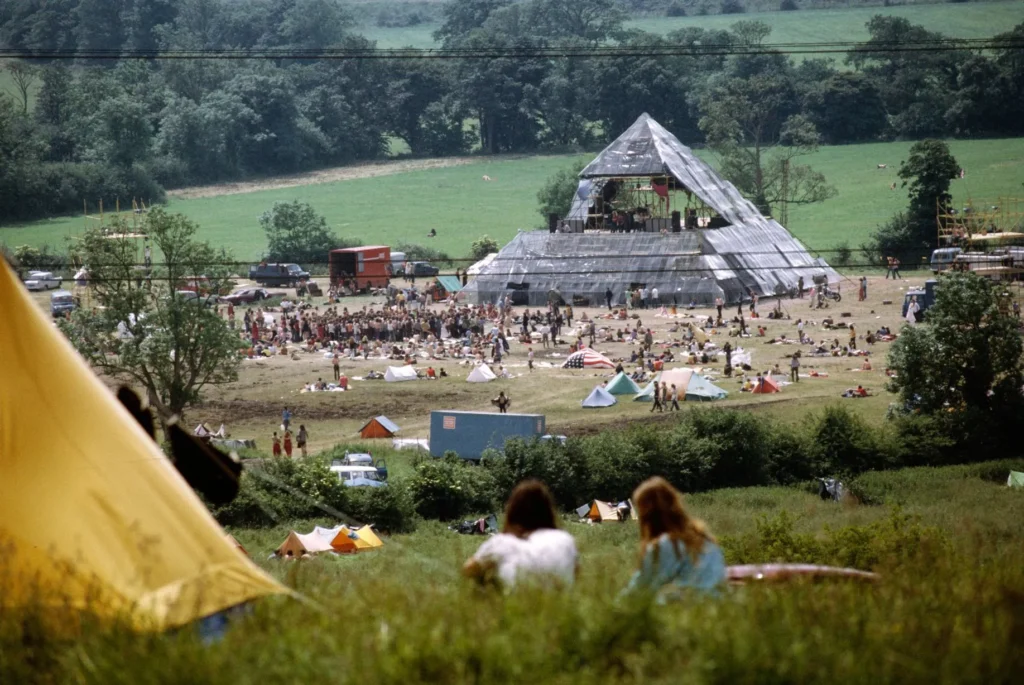
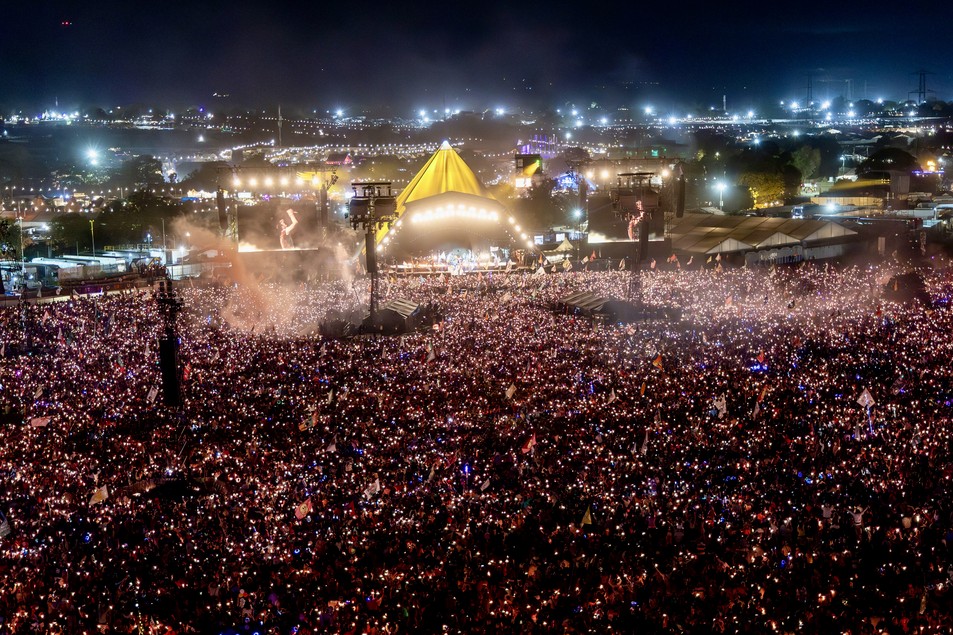
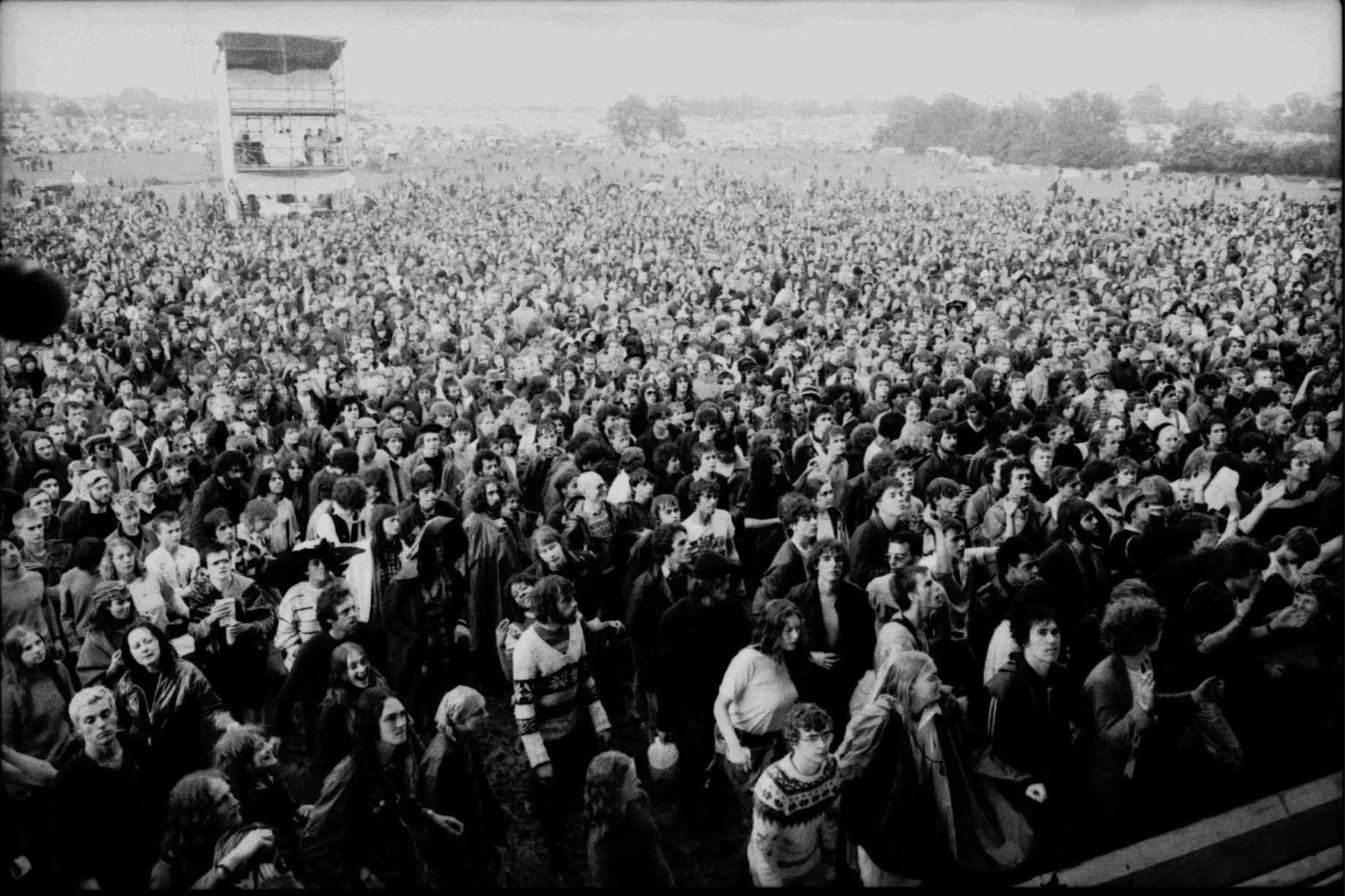
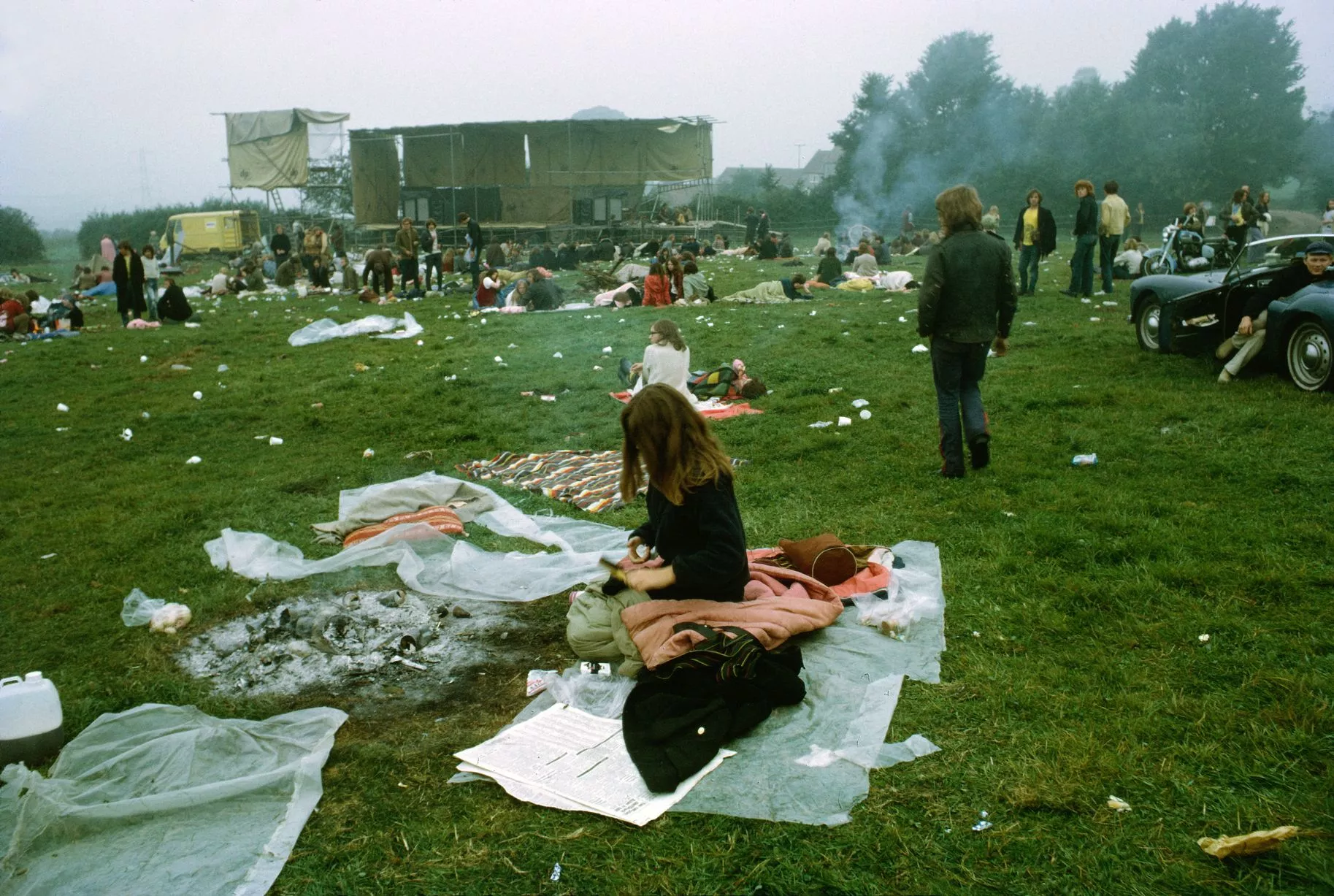
Astutely, Glastonbury: 50 Years & Counting concentrates on the festival’s history and interweaving with the tides of British culture, where it has often acted as a stamp of recognition that a movement or scene – indie, dance, Britpop, etc – is officially ‘happening’. Beyond an eye-opening trip inside NYC Downlow, it doesn’t expend much time and energy trying to cobble together a small-screen recreation of ‘the experience’. For that, as a lengthening parade of televisual Glastonbury documenters are finding out, you really have to be there.
‘Glastonbury: 50 Years And Counting’ airs on BBC Two this Sunday (June 19) at 9pm
Written by Mark Beaumont
